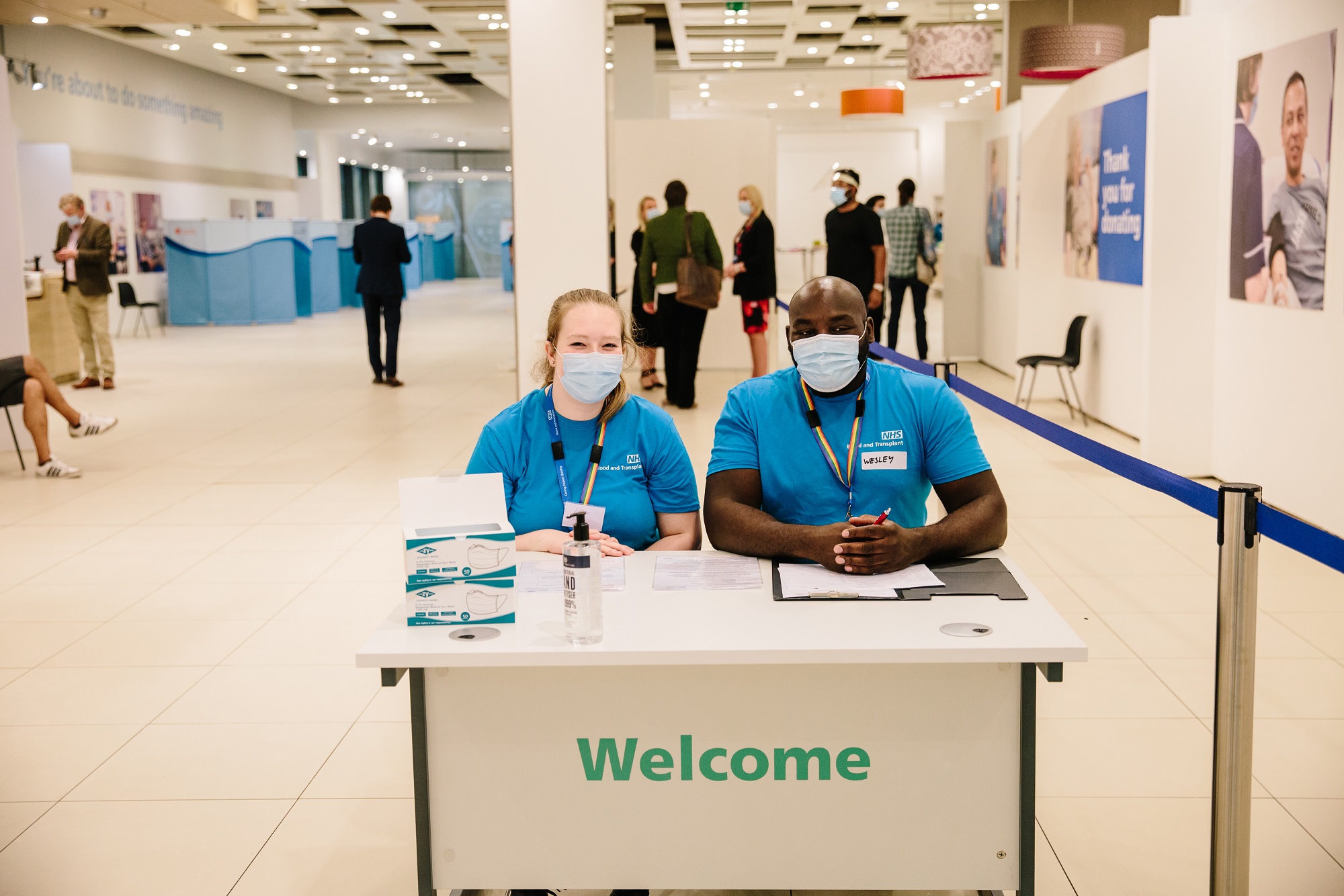Convalescent plasma
At the start of the COVID-19 pandemic, the Government directed NHS Blood and Transplant (NHSBT) to collect convalescent plasma at scale to support large, randomised controlled trials into whether it could be an effective treatment for covid.
Convalescent plasma is the antibody rich plasma of someone who has recovered from an infectious disease. It has been used as a treatment for decades but due to the difficulties involved in collecting plasma and identifying any benefits, there had never been a large scale, randomised controlled trial to determine whether it was effective.
What did we do?
NHSBT rapidly built a complete end-to-end logistical chain and, in April 2020, the first apheresis plasma donations were taken.
 The plasma was supplied to hospitals participating in the REMAP-CAP trial, an international trial of adult intensive care patients, and RECOVERY, a UK trial of patients of all ages admitted to hospital.
The plasma was supplied to hospitals participating in the REMAP-CAP trial, an international trial of adult intensive care patients, and RECOVERY, a UK trial of patients of all ages admitted to hospital.
The challenge of collecting enough high antibody plasma to complete the trials was enormous.
NHSBT created 21 brand new plasma donation centres and took donations at more than 20 of its existing blood donor centres. The donations needed to be taken using apheresis machines, not standard blood donation equipment. A whole new workforce had to be trained so that blood donation was not affected – at the peak of recruitment, NHSBT interviewed more than 700 people in six weeks.
We also had to create new manufacturing, testing, and supply chain processes, and recruit a donor base from the public. This was especially challenging because only 10% of people who had recovered proved to have high enough antibody levels for the trial threshold.
Despite this, at peak collection periods, we had up to 8,000 plasma donation appointments each week, and in total we collected over 90,000 units of plasma. This enabled the RECOVERY and REMAP-CAP trials to collectively randomise over 16,000 patients to test convalescent plasma.
What did we find?
Both RECOVERY and REMAP-CAP concluded that, overall, convalescent plasma does not benefit unselected, hospitalised COVID-19 patients.
This finding was of worldwide significance. These were the first large scale trials of convalescent plasma. They generated a clear result in real-time, while the pandemic was still ongoing. These trials changed medical practice globally and allowed researchers to pivot to exploring other potential life-saving treatments.
Part of the new donation network has now been converted to take plasma donations for immunoglobulins, ensuring an enduring legacy.
There is also new evidence from the detailed analysis of subgroups within REMAP-CAP that shows plasma may benefit immunocompromised people when transfused earlier in the illness. We are supporting the re-opening of the plasma domain of REMAP-CAP on a smaller scale, taking new donations from people who have both had coronavirus and the vaccine.
NHSBT thanks everyone who donated to the convalescent plasma programme.